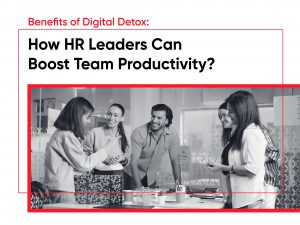Reading Time: 4 minutes
In our recent report, we analyze the current state and future prospects of the manufacturing sector in India. The report dives into various facets of the industry, ranging from economic indicators and government policies to employee sentiment and workplace dynamics. Let’s look closer at the valuable insights into the challenges and opportunities shaping the manufacturing landscape.
Resilience of the Manufacturing Sector Amidst Downturn
Despite a recent dip in the Purchasing Managers Index (PMI), the outlook for India’s Manufacturing sector remains robust, marked by significant expansion in sectoral activity and backed up by supportive government policies. In fiscal year 2023, the sector achieved a milestone with its highest-ever annual exports, totaling $447.46 billion, showcasing a growth rate of 6.03%. The government’s unwavering commitment to the industry is evident through initiatives such as the Production Linked Incentive, National Manufacturing Policy, Make In India 2.0, Digital India, and Startup India, all aimed at fostering growth and innovation. Additionally, the Index of Industrial Production (IIP) saw a remarkable rise, reaching 141.8 in October 2023, marking a 10.4% increase compared to the previous year. Foreign Direct Investments (FDI) continue to flow into the sector, with $33 billion recorded as of September 2023 for the ongoing financial year, facilitated by policies allowing 100% FDI under the automatic route in most sectors. Despite the slight downturn indicated by the PMI for December, dropping to 54.9, the lowest in 18 months, the manufacturing sector’s resilience is underpinned by its significant contribution to India’s GDP, accounting for 17% and providing employment opportunities for an estimated 35.6 million people.
Positive Shift in Workplace Perception
Within the manufacturing industry, organizations experience a notable uptick of 1% in the perception of being a great place to work among employers, with an impressive 86% of employees affirming their organization’s status as such in 2024.
However, despite this improvement, current satisfaction levels fall short of those observed in 2022, suggesting an ongoing requirement for sustained efforts in cultivating an exceptional workplace culture. This need for continuous improvement is more pronounced among larger organizations, as the current rise in perception is predominantly driven by mid-sized companies.

Closing the Gap: Manufacturing Sector’s Trust Index
In a remarkable development, the Grand Mean Trust Index for the Manufacturing Sector has narrowed the gap with other industries, standing just 1% point behind at an impressive 82%.
While the manufacturing sector may lag behind other industries in various aspects, unlike their counterparts in different industries, manufacturing sector employees express higher levels of pride and a profound sense of accomplishment in their professional endeavors. Moreover, they harbor positive sentiments regarding their work’s contribution to society and desire longer tenures in their current positions.

Navigating Disillusionment in Career Progression
As individuals progress in their careers within the manufacturing sector, they encounter a trough of disillusionment, significantly influencing their perception of workplace fairness. This phenomenon potentially serves as both a precursor and a contributing factor to employee attrition within these career stages. Addressing issues of equity and impartiality becomes imperative to mitigate this disillusionment and foster a more supportive and inclusive work environment conducive to employee retention and satisfaction.

Sentimental Dynamics in the Manufacturing Industry
Within the manufacturing sector, employee sentiment reflects a nuanced landscape of satisfaction and concern. The highest satisfaction levels are observed in workplace facilities, societal impact, and management competence. These aspects likely contribute to a positive work environment and employee morale.
However, the sentiment could be more uniformly positive across all aspects. Employees express the lowest satisfaction levels regarding favoritism in the workplace, profit-sharing schemes, and the fairness of promotions. These concerns suggest areas where there may be disparities or perceived injustices within the organizational structure, warranting attention and potential remedial action to enhance employee trust and engagement.

Integrity: A Crucial Driver of Employee Satisfaction in Manufacturing
In the manufacturing sector, the perception of integrity within organizational leadership is pivotal in influencing workplace culture and employee satisfaction. Organizations within this industry must prioritize efforts to enhance management’s perceived integrity.
To foster employee retention and maintain a motivated workforce, manufacturing organizations must ensure that their leaders consistently uphold their commitments, exemplify honesty and integrity, and align their actions with their words. By embodying integrity in their conduct and decision-making processes, leaders can inspire trust among employees, cultivating a positive work environment conducive to productivity and well-being. This emphasis on integrity is a cornerstone for building a strong organizational culture and fostering long-term success within the manufacturing sector.
The manufacturing sector in India exhibits promising signs of growth and resilience, propelled by significant achievements in exports, government support, and industrial production. While challenges such as maintaining workplace satisfaction and addressing equity issues persist, there is ample room for improvement and innovation. By prioritizing integrity, fostering a positive workplace culture, and leveraging the benefits of becoming a Great Place To Work, manufacturing organizations can drive sustained growth, enhance competitiveness, and contribute to the overall prosperity of the sector and the nation. Visit us here to learn more.











